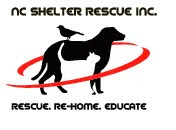For years now we have seen on Face Book many Animal Rescuers making every excuse in the world on why they are not subject to needing to obtain Health Certs and Vaccinations for the Shelter Animals they are shipping from one State to another, and that's exactly what it is, an EXCUSE.
Many Animal Rescuers have popped up on Face Book in the last 3 years, and many of them if you do a search for the Health Certificates on those animals that took from a North Carolina Animal Shelter, well you will find Heath Certificates were never obtained neither was a trip to the Vet for their vaccinations prior to being packed like sardines on a mass transport to another State.
In fact many of the profiles you deal with on Face Book in the Animal Rescue Community are not even who they say nor are residing in the State they claim to live in. They "pull" animals under other group names so they can stay hidden and not be on any radar. They do not want anyone to know how animals they have "pulled" or have sent to any particular location.
North Carolina Animal Shelters beware, social media has become a hot bed of scams and reckless rescue efforts and North Carolina is their current target. I suggest for all North Carolina Animal Shelters to start requiring anyone coming to "pull", adopt or transport an animal to show you their drivers license, make a copy and place it in your file. For out-of-state rescue groups, mandate them to fax you a copy of their Drivers License so you can make sure your dealing with a real person and so that you know the State you just shipped our Shelter Animals to. A small check and balance like this will cut down immediately many of those that are causing us the most harm for our Shelter Animals.
Our Shelter Animals already have it extremely difficult as they find themselves on death row, the last thing they need is to be sent to an animal abuser, hoarder, live testing facility or worse. As we have seen in the recent raids on property's, there is something worse than humane euthanasia and it's called reckless rescue. Shame on all that refuse to follow these simple steps to better look after the animals welfare.
Below is the NC Laws:
North Carolina Department of Health and Human Services
Division of Public Health Epidemiology Section
Communicable Disease Branch
1902 Mail Service Center Raleigh, North Carolina
27699‐1902
Tel 919‐733‐3419 Fax 919‐733‐0490
Beverly Eaves Perdue, Governor Jeffrey P. Engel, MD
Lanier M. Cansler, Secretary State Health Director
Location: 225 N. McDowell Street Raleigh, N.C. 27603
An Equal Opportunity Employer
DATE: 28 JUNE 2010
TO: Animal rescue groups, shelters, transporters &
persons exporting companion animals from NC to other states
FROM: Carl Williams and Marilyn Haskell, Public Health
Veterinarians, NC DPH
SUBJECT: STATE OF DESTINATION ANIMAL IMPORTATION
REQUIREMENTS
People and organizations commonly take domestic companion
animals from North Carolina animal shelters to other
states to be sold or adopted. Domestic companion animals
must be moved to the state of destination in accordance with
that state’s laws. If you are taking a dog, cat or ferret
from NC to another state for any reason you must comply with all
importation requirements set forth by the state of
destination and these requirements vary from state-to-state.
The state of destination, typically the agriculture
department, should always be consulted prior to moving animals into that
state to ensure compliance with all appropriate state laws,
rules and regulations. Always consult with a USDA accredited
veterinarian prior to moving any animals to another state.
The importation requirements and contact information by state
RABIES CERTIFICATES and HEALTH CERTIFICATES
These requirements may vary from state-to state; for example
to be imported into NC dogs, cats and ferrets must
1. have proof of current vaccination against rabies by 4
months of age (age requirement may vary among states),
2. be accompanied by a certificate of veterinary examination
signed by a licensed & accredited veterinarian
indicating the animal
a. has not been exposed to rabies
b. does not originate from a rabies quarantine area
c. is free from contagious or communicable diseases (may not
be limited to zoonotic diseases).
ACCREDITED VETERINARIANS
Veterinarians that complete Certificates of Veterinary
Examination (health certificates) for animals going to other states
must be NC licensed and accredited by the United States
Department of Agriculture (USDA) and should have knowledge
of the state of destination’s import requirements. Those
requirements can be found online at the USDA website:
http://www.aphis.usda.gov/import_export/animals/animal_import/animal_imports_states.shtml.
REGULATION OF COMPANION ANIMAL SALE/DISTRIBUTION
In addition to importation requirements some states may also
regulate the manner in which companion animals are sold
or distributed within their state, for example:
Rhode Island requires persons engaged in the sale or
distribution of dogs to be licensed with the State
Department of Agriculture
(http://www.rilin.state.ri.us/Statutes/TITLE4/4-19/INDEX.HTM).
Massachusetts requires that all dogs or cats brought or
shipped into the Commonwealth for commercial resale
shall be inoculated against distemper not more than thirty
nor less than seven days before entry and all dogs or
cats imported for resale shall be held in isolation by the
importer for a period of two days prior to offering for sale
(http://www.mass.gov/legis/laws/mgl/140-138a.htm).
MA Dept. of Agricultural Resources issued an Emergency
Order (attached) on animal importation.
Thank you for your attention to this matter. If you have any
questions please call the Veterinary Public Health program at
919-733-3410 or contact the state of destination to ensure
all import requirements are met.















